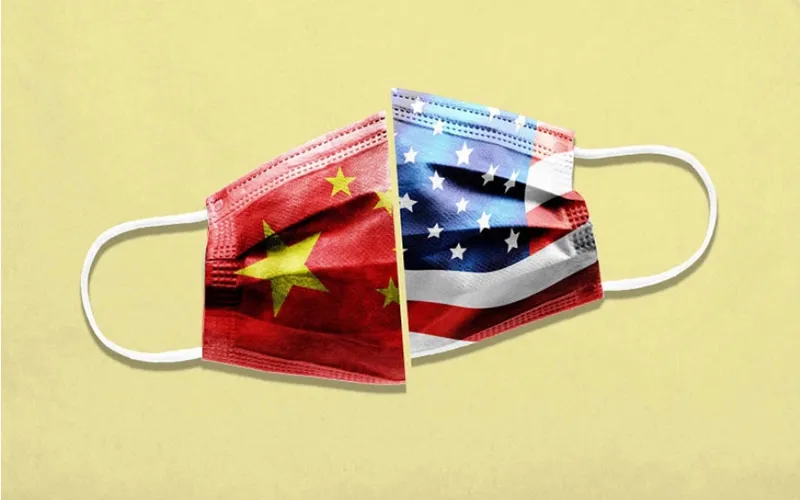A new pandemic-induced conflict
On the other side of this new conflict, China and Russia seemed to be facing a new necessity to unite themselves in one front to counter the alliance just established by the US.
US President Donald Trump has been criticized by some allies in Europe and within the G7 group for halting funding to the World Health Organization (WHO). But apparently he succeeded in rallying them to confront China in some aspects related to the coronavirus pandemic.
| Foreign Policy illustration |
At a very early stage of this pandemic, he accused China of letting this pandemic spread and of misdealing with it as well as of having covered it up so that the pandemic could quickly extend to Europe and America. He used terms and definitions such as "Wuhan virus" or "Chinese virus" to describe the coronavirus. His attacks on the WHO were also aiming at stressing that China was fully and entirely responsible for the outbreak and spread of this pandemic. Just after he claimed to conduct investigations into China's handling of the pandemic, his military personnel filed the conspiracy that the coronavirus could have been leaked from a laboratory in Wuhan, China. Both France and the UK issued statements implying that China's cover-up and mishandling of the pandemic might have left tremendous damages to the world. All other G7 members buried their heads in the sand and kept silence and in this case no dissent means consent.
On the other side of this new conflict, China and Russia seemed to be facing a new necessity to unite themselves in one front to counter the alliance just established by the US. Russia sided with China and both protect the WHO.
This new conflict is much noteworthy because the fight against the pandemic mirrors the competition between ideologies and state political systems, between ways and means to deal with this pandemic, between international influences and roles. Russia stands by the Chinese side because of its strategic partnership with China and because Russia helps itself by supporting China. Those accusations and actions of the US and its allies could be very detrimental for China.
The US and its allies initiated this new conflict with China first of all because they realized that China until now has been much better dealing with the pandemic and distinguished itself from the pandemic as a successful model and as being capable of leading the world in the rough time of the pandemic while it is still out of control in Europe and in the US. They aim at undermining China's international reputation and credibility and at rolling back China's role and influences in the world.
Therefore, China's relations with the United States and its allies will be fragile and more likely to deteriorate rather than improve during and after the coronavirus pandemic.
Disclaimer: The views expressed by Ambassador Tran Duc Mau are of his own and do not necessarily reflect the views of Hanoitimes.










